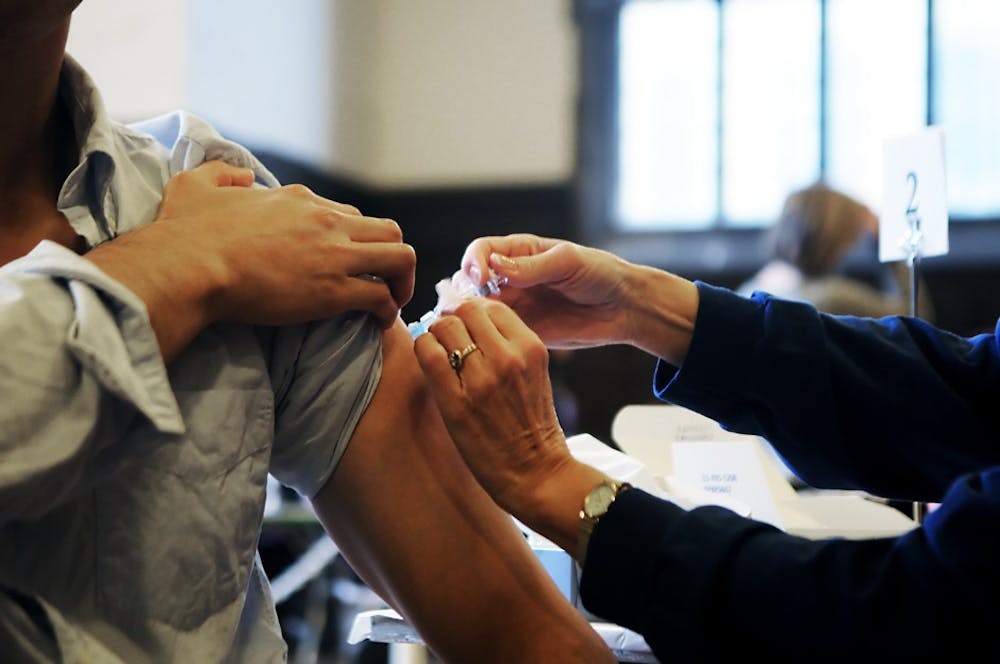
Wharton's Behavior Change for Good Initiative is partnering with Walmart on a research study that aims to identify whether text communications can increase vaccinations.
BCFG, an initiative that focuses on large-scale studies with organizational partners, designed 22 distinct texting strategies that were tested on hundreds of thousands of Walmart pharmacy customers this past flu season. Researchers are currently analyzing the results and hope to identify the most effective communications by 2021.
Executive director of BCFG Dena Gromet, a 2004 College graduate, said the initiative is not only looking to identify which strategies work best overall, but also which strategies are best suited for specific subsets of the population.
According to the Wharton Newsroom, some texts prompted the customers to reply "I will get a flu shot," a commitment to incentivize future action. Other strategies involved making jokes about the flu season that reminded the people receiving the texts to get vaccinated.
Katherine Milkman, Wharton professor and director of BCFG savings and health, explained that BCFG's goal is to understand whether communications over text can close the action-intention gap when it comes to vaccinations.
"The action-intention gap describes the fact that on average, people fail to follow through on anywhere from a third to two thirds of their intentions," Milkman said. "We intend to vote, get recommended cancer screenings, and study for tests, but often those intentions aren’t converted into action."
BCFG has been interested in studying vaccine communication since before the COVID-19 outbreak. Milkman said she hopes that the findings from the study can be used to develop highly effective communications for bridging the action-intention gap when a COVID-19 vaccine becomes available.
The Daily Pennsylvanian is an independent, student-run newspaper. Please consider making a donation to support the coverage that shapes the University. Your generosity ensures a future of strong journalism at Penn.
Donate







